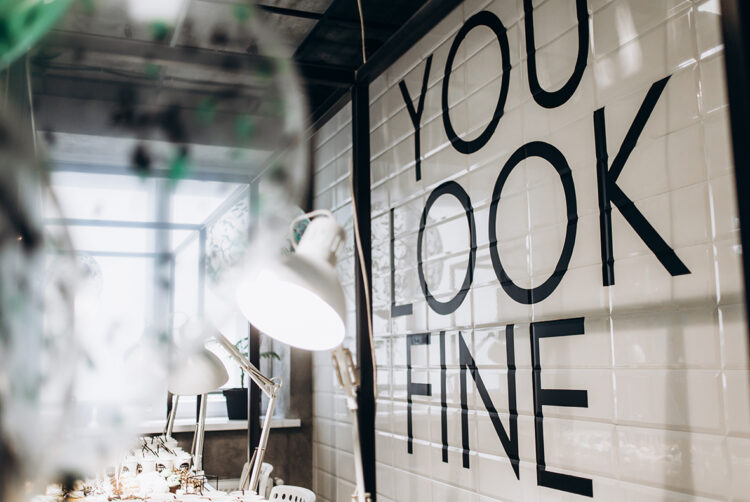Are brands OK with children harming other children?

Opinion
The trend of skincare products targeting children, promoted by young influencers with the support of cosmetics companies, is a damaging one. Brands can and should do better.
It would be any marketer’s dream to find themselves riding the crest of a children’s craze. When I was at school, a fad would sweep in, apparently from nowhere, and invade the playground. Frisbees, Rubik’s Cubes, skateboarding, hula hoops, yo-yos and Beanie Babies all had their moment.
We can all remember the intensity of desire, verging on obsession, of any craze. As we get older, it is simply put down to a rite of passage. It may have been a waste of money, but I can’t think of one that was actually harmful. However, we now find this well-understood phenomenon being harnessed by the cosmetic industry, as it targets young girls with potentially harmful products.
Mothers who may have thought there was no harm in a bit of experimentation with make-up suddenly find their children are obsessed with skincare products that could leave them with irreversible problems. Girls are pestering their parents and friends to buy anti-ageing creams, exfoliating face masks, body scrubs and make-up for their birthday.
The British Association for Dermatologists has warned that many of these products contain potentially harmful active ingredients intended for adults only, such as exfoliating acids, which can provoke allergies or eczema.
Clickbait entrepreneurs
As with so many harmful trends, this one has spread like wildfire, thanks to social media driven by influential “kidpreneurs”. That is, children who give their verdicts on products on their “get ready with me” TikTok posts. These child influencers typically promote brands like Bubble, Drunk Elephant and Skinbetter Science with an average price label of £60.
Which child wouldn’t be thrilled to find themselves popular among their peers and given the opportunity to make quite a bit of money? I don’t blame them for being seduced into their role, but I do hold those brands accountable for turning a blind eye to the consequences.
Shai Eisenman, the founder of Bubble, spotted that teenagers didn’t want to use the same brand as their mothers and grandmothers. Using textbook marketing techniques, she did research among 5,000 teens to “create something they would love” and has invested hugely in promotion using celebrity ambassadors and 1,000 micro-influencers.
Sadly, while colourful packaging and careful marketing have created this craze, it’s all a bubble of nonsense. Consultant dermatologist Dr Sharon Wong believes children need only sun protection: “Cleanse, moisturise and put your sunscreen on. That’s it.”
Children selling to children
There is something particularly unedifying about brands encouraging children to get other children to spend considerable amounts of money on something potentially harmful. Harm that could affect not only their physical health but also their mental health.
This trend is fuelling an obsession with appearance that is associated with eating disorders, anxiety and depression. This could in turn fuel the increasingly younger consumers of Botox-style and dermal-filler injections (now illegal if administered to anyone under the age of 18).
The UK Cosmetic, Toiletry and Perfumery Association was sufficiently concerned to issue a media alert in January about the rise of children using anti-ageing products, advising: “It is not a trend that should be encouraged.”
Surely the promotion of such skincare regimes should be banned and retailers should be prevented from selling them to underage girls. Don’t forget that the Advertising Standards Association code’s requirements for ads aimed at children, including social media, state that advertisers should not “present an unhealthy body image as aspirational, [or] exploit people’s insecurities about their body image”.
Brands cannot avoid responsibility forever
In February, Drunk Elephant’s CEO was forced to lay out a detailed list of which products are safe for kids and tweens, along with the statement: “We do not recommend children under 13 use acids or retinol. Vitamin C is an acid.” The company has distanced itself from any responsibility for the social contagion that has led to its products being desired by under-10s.
As far as the company is concerned, parents are responsible for what their children consume. But it can and should do better — and I hope the media continues to cover this story.
Any brand should be concerned about the misuse of its products and intervene to stop it from happening. It would not be difficult for Drunk Elephant to apply its considerable marketing skills on TikTok to reach children with appropriate advice. Shiseido acquired Drunk Elephant for approximately $845m in 2019, so it can certainly afford to do much more.
Suzy Levy, author of Mind the Inclusion Gap, recently posted about a sign she came across in the ladies’ loo that read “You look fine!” in place of where a mirror would normally sit. She wrote: “It’s a battle trying to teach children that what’s inside is more valuable than external beauty and that, no, they don’t need a skin peel, a face scrub, a beauty serum or any other make-up product at 12 years old.”
It is fair to say children are picking up on the body-image anxieties of adult women. It’s something that all women should reflect on. We are beautiful, whatever our age, and should only be concerned with protecting our skin from the sun.
 Jan Gooding is one of the UK’s best-known brand marketers, having worked with Aviva, BT, British Gas, Diageo and Unilever. She is now an executive coach, chair of PAMCo and Given. She writes for The Media Leader each month.
Jan Gooding is one of the UK’s best-known brand marketers, having worked with Aviva, BT, British Gas, Diageo and Unilever. She is now an executive coach, chair of PAMCo and Given. She writes for The Media Leader each month.





